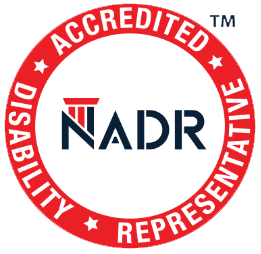When Do Social Security Disability Benefits Stop?
Social Security Disability (SSD) benefits stop when you become ineligible to receive them. But the Social Security Administration (SSA) has many standards for eligibility. If you become ineligible under any of these standards, your SSD benefits will end. Here is some information about the rules the SSA uses to determine when Social Security Disability benefits stop.
Ending Social Security Disability Benefits
Congress created SSD benefits to help eligible workers when they become disabled. Congress did not intend these benefits to last forever. Instead, they help people who cannot work or train for work due to their illnesses or injuries.
To receive SSD benefits, you must meet certain eligibility requirements. If you meet these requirements, the SSA awards disability benefits. These disability benefits continue as long as you remain eligible. Some events that end your eligibility for SSD include:
Reaching Retirement Age
If you receive SSD benefits when you hit the full Social Security retirement age, SSA will automatically change your disability benefits into retirement benefits. You will receive the same amount. However, SSA will re-characterize the payments.
Getting Better
Eligibility for SSD benefits requires a long-term injury or disease. But the SSA does not require you to have a permanent injury or disease. A temporary injury or disease will suffice if doctors reasonably expect it to last at least one year.If your medical condition improves, you may no longer qualify for SSD benefits. This will depend on whether you improve enough to work or train for new work.
You must report all medical improvements to SSA. You will also undergo periodic continuing disability reviews. If either of these shows that you have improved, SSA could end your benefits.
Working Again
Your disability must prevent you from working or training. If you work again, you exhibit to SSA that your disability does not prevent you from working.
SSA allows you to work on a trial basis to test your ability to work without losing your SSD benefits. You can work during a trial work period without losing your benefits. However, if you work over nine months within a rolling 60-month period, SSA will end your SSD benefits.
Death
When you die, you can no longer receive SSD benefits. Your survivors might receive survivor benefits. But if they cash your SSD benefits payments after your death, the SSA will require repayment.
Higher Income
In addition to working too much, SSA can also end your SSD benefits if you earn too much. SSA only looks at your earned income, such as wages, salary, and tips from any gainful activity. SSA does not include unearned income, such as gifts or investment income.
If your earned income exceeds a threshold, SSA will end your SSD benefits. This threshold varies from year to year, so you should look at the current income limit schedules.
Ignoring SSA
SSA will periodically request information from you. If you fail to respond to the requests, SSA can suspend or terminate your benefits.
Criminal Activity
SSA has rules against paying benefits to anyone engaged in criminal activity. They can suspend or end your payments if you:
- Have an active warrant for your arrest
- Get sentenced to jail or prison after a criminal conviction
- Are in violation of your parole or probation
SSA cross-references its records with other government agencies. SSA could find out about any of these events even if you fail to self-report.
Responding When SSA Incorrectly Ends Your Benefits
If SSA wrongfully terminates your SSD benefits, you can request reconsideration, seek a hearing, or appeal. These proceedings can involve the presentation of evidence. They may even require you to argue that the SSA incorrectly interpreted its regulations as they apply to you.
To get help after your SSD benefits end, contact Disability Support Services at 410-224-0006 or through our contact form. We will evaluate your case for free and determine what we can do to help you.



